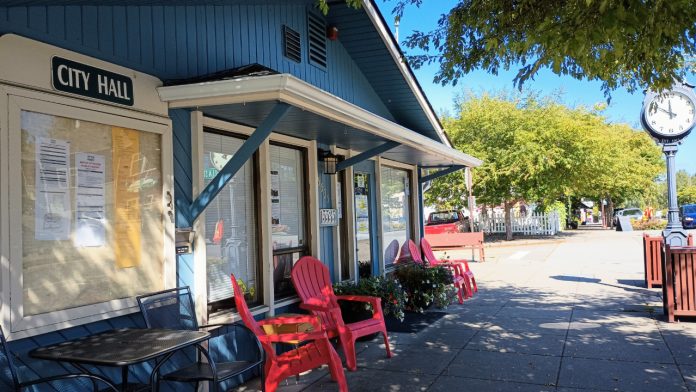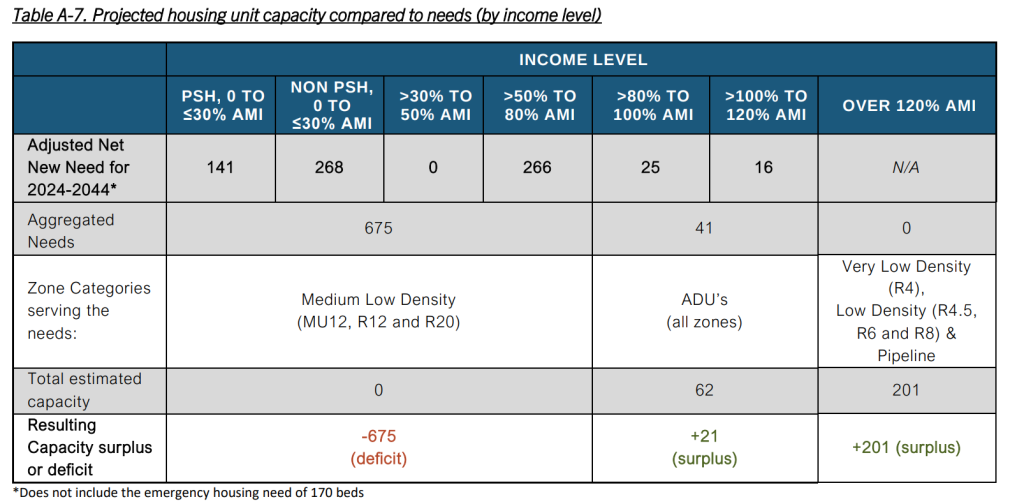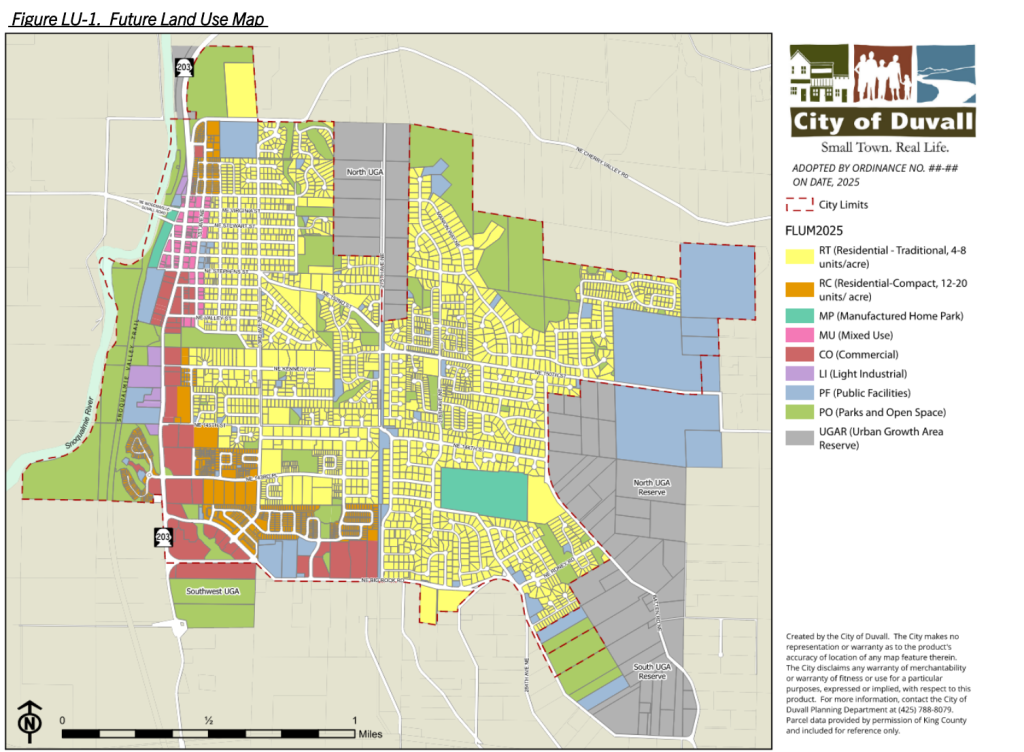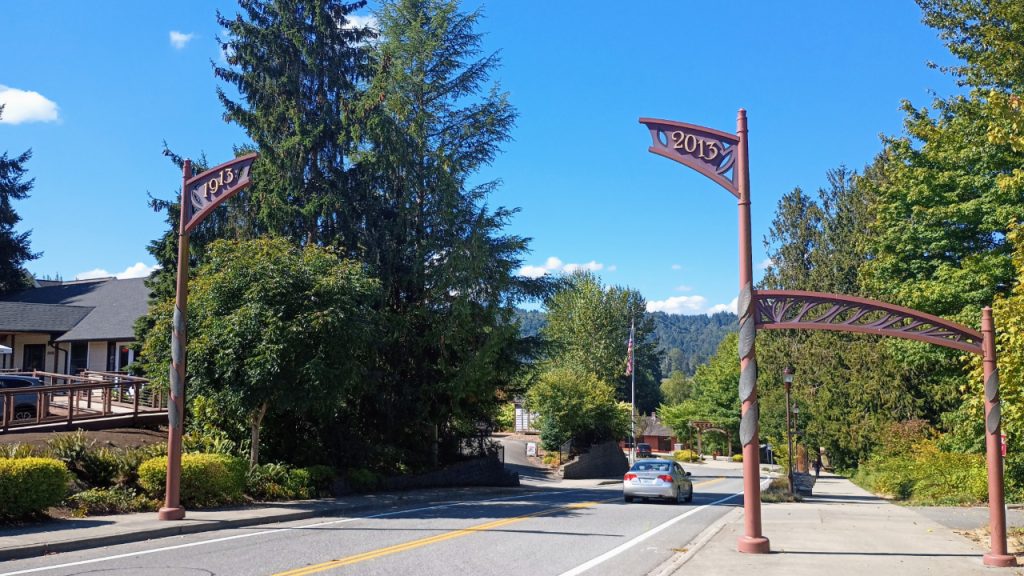
The small Eastside exurb of Duvall, tucked into the Cascade foothills northeast of Redmond, has found itself the latest Puget Sound city to be defending its housing growth plan at a state appeals board. But unlike recent growth plan appeals, including one focused on Mercer Island that resulted in a high-profile ruling against the city, this appeal comes directly from Washington’s state government. At the heart of the appeal is Duvall’s decision to not implement a new state law intended to increase housing choice and availability, with a city official telling the state that official guidance implementing such a policy is “disingenuous” and wouldn’t work.
The appeal, which was filed in early September, represents the first direct state challenge to a local city’s Comprehensive Plan since the adoption of 2021’s HB 1220, which requires local cities to go much further than previously mandated in planning for future housing growth. That law mandates that cities specifically target expected housing needs by income level, aligning permitted land use with the households that are more likely to be able to afford homes built on that land.
Facing the state mandate, Duvall officials determined that doing so would be infeasible and approved its final plan this past June without incorporating those new requirements, prompting this appeal.
Residents in Duvall, which straddles the Snoqualmie River just south of the Snohomish County border and is home to nearly 9,000 people, have a median income of nearly $180,000, more than 50% higher than the median income across broader King County. A housing needs assessment completed by the city in 2023 found that only 5% of the homes in the city are occupied by renters.

Under the Growth Management Act, Duvall has been directed by King County to make room for 890 new houses or apartments over the next two decades, an increase of nearly a third compared to a 2019 baseline.
Over three-quarters of those units are expected to be utilized by households making 80% of King County’s area median income or less — or around $97,000 for a family of two. With 79% of Duvall zoned for either low density or very low density residential uses, and no land set aside for even medium-density building types, those expected income levels are very mismatched in how Duvall had been planning future growth. Those new residents with modest incomes aren’t expected to be able to afford any homes built in low-density areas, so Duvall faced a shortfall of 675 units — a shortfall that it simply left unaccounted for in its growth plan.

“Currently there is no clear path forward for the City of Duvall to take which would reasonably increase capacity to affirmatively ensure that the assigned affordable housing needs can be met,” Duvall’s final Comprehensive Plan stated. “Given the deficit, the City must identify and implement actions to address the projected deficit. To do this, the City has a few options. For example, the City could potentially change the zoning of selected developable lands to a higher density or amend existing zoning regulations to increase density within zones, add incentives for affordable housing through various methods, or other measures or a combination of measures.”
In a footnote, the plan then discounts the idea of allowing higher-density zoning to accommodate more affordable types of housing.
“This appears to be infeasible […] given a cursory review of mapping products from the [urban growth capacity report] and an examination of the physical location where development has occurred or has been vested for market-rate housing production. ‘Upzoning’ will not resolve the deficit,” the plan states.
Duvall also doesn’t appear to have taken any meaningful steps to accommodate 170 units of emergency shelter as required by state law, instead assuming that if any shelter capacity is added in the city it would be closer to the 2044 time horizon on the plan. Nor did the city take steps to document policies that result in racially disparate impacts within their borders, another element of HB 1220.

After the Commerce Department flagged these deficiencies within Duvall’s draft plan a few weeks before it was adopted in June, the City responded by stating an expectation that King County would revise its growth target for Duvall, an extraordinary step that the county takes sparingly.
“[T]he City intends to consult with King County to determine the most effective actions to take, which will likely involve revising the growth allocation through the reconciliation process,” a letter from Niomi Montes de Oca, Duvall’s Senior Planner, stated. Both Snoqualmie and Carnation, two other cities on the eastern fringe of the county’s urban growth boundary, had requested and received growth target “reconciliations” from King County earlier, a move that resulted in a scaling back of the number of units those two cities were expected to accommodate. But that process was not initiated for Duvall.
Ultimately, Montes de Oca admitted that Duvall’s decision to disregard HB 1220 and state guidance on how to implement it came about because the City disagreed with the outcomes that it would produce.
“The City made this decision because it would not be genuine to equate high-density housing with affordable housing. As construction is completed and developers receive certificates of occupancy for the new townhouses, the city has observed them placing the townhomes on the market at well above 80% of the Area Median Income (AMI). Therefore, they really aren’t being offered as truly ‘affordable’ housing,” Montes de Oca’s letter continued. “The problem that legislation is trying to solve is likely to persist or worsen, which would be reflected in the results of a future state review. The city is confident that other cities that choose to adopt a policy or code that meets the intent in theory, but do not implement or demonstrate verifiable results, will fail because the application relies on a disingenuous policy.”

The appeal against the City of Mercer Island, filed early this year by land use advocacy nonprofit Futurewise, dealt with many of the same issues at play in Duvall. The Growth Management Hearings Board’s ruling against the city will require significant adjustments of Mercer Island’s Comprehensive Plan, and ultimately confirmed the degree to which HB 1220’s approval was a seismic shift in how cities plan for housing growth under the GMA. Since that time, Futurewise has also filed appeals against the city of Clyde Hill and the town of Hunts Point, with potential negotiations over a settlement ongoing.
The Department of Commerce is also working with Duvall about a potential settlement that would avoid a hearing here, according to a filing made at the Growth Management Hearings Board earlier this month. If Duvall follows in Mercer Island’s footsteps, that likely means significantly altering its land use plan, and seriously grappling with what it means to be planning for affordable housing.
“We are in discussions with the city and hope we can resolve our disagreement in a way that meets the needs of both parties,” Commerce spokesperson Amelia Lamb told The Urbanist.
“Since this is ongoing litigation, we prefer to not provide a substantive comment,” Duvall City Administrator Cynthia McNabb said via email. “With that said, we are in discussions with the Washington State Department of Commerce and are optimistic we can resolve the issues relating to our Comprehensive Plan Update in a way that meets the needs of both parties. We appreciate the professionalism the Department of Commerce has brought to our conversations thus far regarding the appeal.”
Ryan Packer has been writing for The Urbanist since 2015, and currently reports full-time as Contributing Editor. Their beats are transportation, land use, public space, traffic safety, and obscure community meetings. Packer has also reported for other regional outlets including BikePortland, Seattle Met, and PubliCola. They live in the Capitol Hill neighborhood of Seattle.




